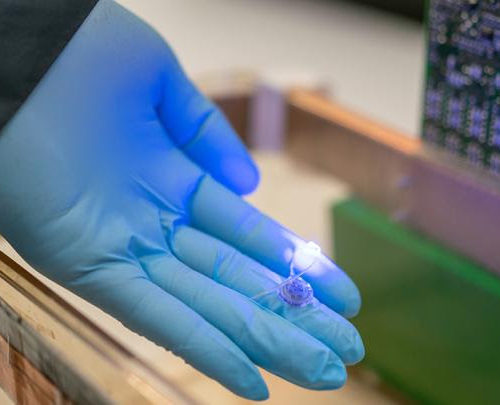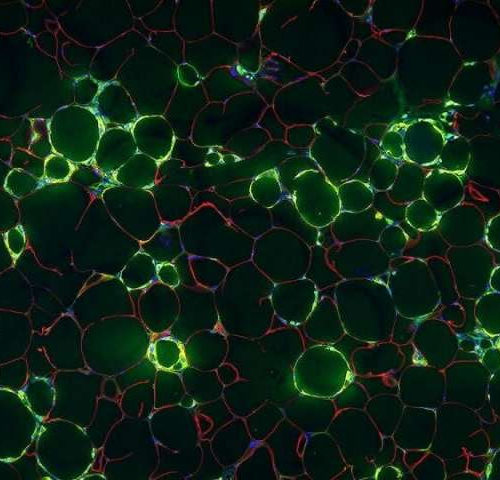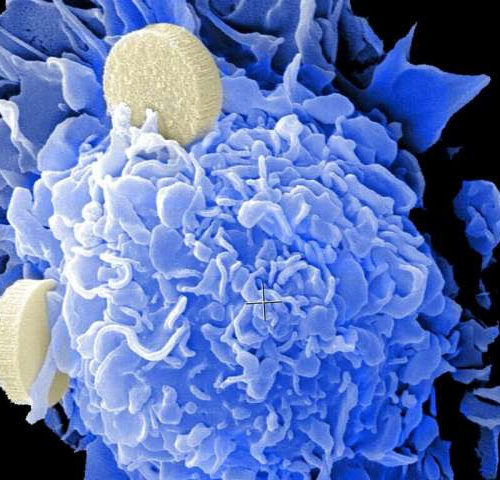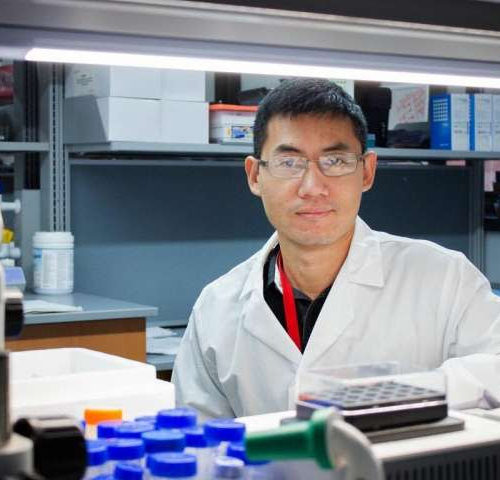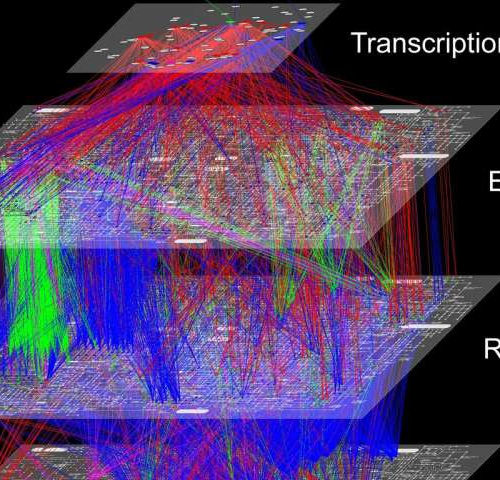TEXAS A&M UNIVERSITY IMAGE: DR. SUNG II PARK’S PADDLE-SHAPED DEVICE CONSISTS OF A HARVESTOR THAT CONTAINS MICROCHIPS FOR WIRELESS COMMUNICATION. THE HARVESTOR ALSO PRODUCES CURRENTS TO POWER LEDS INSERTED NEAR THE END OF THE SHAFT CREDIT: TEXAS A&M UNIVERSITY COLLEGE OF ENGINEERING Gastric bypass surgery is sometimes the last resort for those who struggle with...
Tag: <span>obesity</span>
In-utero exposures associated with increased risk of thyroid cancer
by University of Bergen Credit: Unsplash/CC0 Public Domain A recent study by prof. Tone Bjørge, University of Bergen, and her team shows that thyroid cancer is related to in-utero exposures. Thyroid cancer is diagnosed at a younger age than most other malignancies and the incidence is higher in women than men. “The only established modifiable risk factors for thyroid...
Blood vessel cells implicated in chronic inflammation of obesity
by UT Southwestern Medical Center A UTSW study identified a type of blood vessel cell that triggers inflammation in fat tissue. Above, inflammatory immune cells (green) surround fat cells (red) in obesity and contribute to the development of metabolic disease. Credit: UT Southwestern Medical Center Dec. 30, 2020—When fat cells in the body are stuffed with...
Study finds cancer survivors run greater risk of developing, dying from second cancers
by American Cancer Society Credit: Unsplash/CC0 Public Domain A new American Cancer Society study finds that adult-onset cancer survivors run a greater risk of developing and dying from subsequent primary cancers (SPCs) than the general population. Cancers associated with smoking or obesity comprised a majority of SPC incidence and mortality among all survivors. The study appears...
Cancer risk from obesity differs for men and women
A new study, led by researchers at the University of Bristol and the International Agency for Research on Cancer (IARC), has revealed that where fat is on our body may lead to different health outcomes for men and women. The research, co-funded by World Cancer Research Fund (WCRF), Cancer Research UK and Diabetes UK, found that having more body fat around your waist is...
Patients don’t receive recommended follow-up care after weight loss surgery
UNIVERSITY OF EAST ANGLIA Patients who have had weight loss surgery may not be receiving follow up care from their GPs as recommended in clinical guidelines – according to new research from the University of East Anglia and the University of Birmingham. Clinical guidelines recommend that patients receive nutritional and weight monitoring annually for life...
Brown fat: Implications in obesity
by Masonic Medical Research Institute The Lin Lab at the MMRI, quantified the number of brown fat cells present in newborn animals. For years, researchers have argued over whether brown fat continues to grow after birth. Dr. Lin and his team have become the first to prove that it does. Credit: Masonic Medical Research Institute Brown fat, also known as brown...
Obesity changes cell response to glucose, uses slower metabolic path in mouse liver
by University of Tokyo The trans-omic network includes regulatory pathways that are specific to obese mice and those specific to healthy mice. Color coding highlights pathways that respond to glucose only in normal-weight mice (WT, blue), only obese mice (ob/ob, red), pathways in common (green), and pathways that react in opposite ways in obese and normal-weight...
Identification of new factor that offers potential new therapeutic strategy for obesity
by Medical University of Vienna Obesity is a serious global health problem and a risk factor for diseases such as type II diabetes, heart disease and fatty liver disease. A central element in the development of obesity is adipose tissue, which comprises fat cells (so-called adipocytes, specialized to store fat) and macrophages (immune system scavenger cells,...
Genetic risk of developing obesity is driven by variants that affect the brain
UNIVERSITY OF COPENHAGEN THE FACULTY OF HEALTH AND MEDICAL SCIENCES Over the past decade, scientists have identified hundreds of different genetic variants that increase a person’s risk of developing obesity. But a lot of work remains to understand how these variants translate into obesity. Now scientists at the University of Copenhagen have identified populations of...

